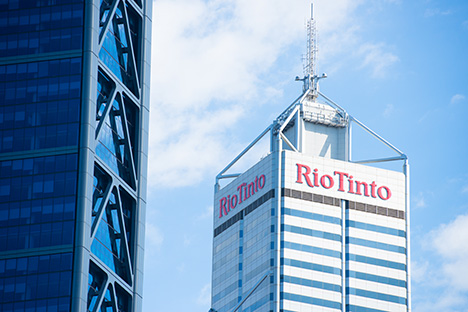For a span of over two years, Anglo-Australian mining company Rio Tinto (NYSE: RIO) was an income investor’s dream.
In the beginning of 2020, shareholders could have added Rio Tinto to their portfolios for less than $59 per share. That same year, the company paid shareholders $5.57 per share in dividends for a yield of 9.4%. In 2021, the dividend went up to a tremendous $10 per share, yielding an astonishing 17% on the original price.
Today, with the stock around $70, the $10 dividend paid last year equals a yield of 14%.
Can shareholders expect the same good fortune going forward?
It’s doubtful.
Like many companies in the natural resources space, Rio Tinto pays special and variable dividends when the cash is rolling in.
If we go by what Rio Tinto calls its interim dividend, which is like a regular dividend, then Rio Tinto has raised it every year except – and this is a big exception – in 2016, when it slashed the payout to $1.70 from $2.12 per share.
If you’ve been following this column, even if only for a little while, then you know that a dividend cut is a cardinal sin. No matter how good everything else looks, a reduction in the dividend results in a downgrade.
The thinking is that once management has grown comfortable with making that awful decision to lower the dividend, it can do so again more easily.
Yet there are other issues Rio Tinto shareholders should be concerned about when it comes to the dividend.
Free cash flow doubled from $9.7 billion in 2020 to $18 billion in 2021, but it’s expected to decline to $16.3 billion in 2022.
Last year, the payout ratio was 85%, which is above my 75% comfort level. In 2022, dividends paid is expected to exceed the $16.3 billion free cash flow estimate, which is not good.
In fact, it’s quite bad.

With the interim dividend at only $3.76 last year, a dividend cut is unlikely. But because of Rio Tinto’s declining cash flow and its 100%-plus payout ratio, investors should most definitely not anticipate receiving $10 per share again in 2022. That number is almost certainly going to be lower.
Dividend Safety Rating: F

If you have a stock whose dividend safety you’d like me to analyze, leave the ticker symbol in the comments section.
And be sure to see whether I’ve written about your favorite dividend stock recently. Just click on the magnifying glass at the top right part of Wealthy Retirement homepage, type in the company name and hit enter.
Good investing,
Marc
